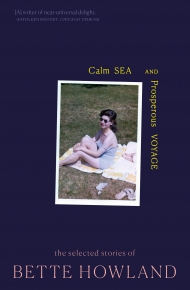Monday Memo
News • June 11, 2018

This week, we're talking about:
- On June 14, the World Cup kicks off in Russia, with games scheduled for 32 days in 11 cities across the country. Russian culture and society, too, continue to fascinate Americans, in particular, from political headlines to social media to prestige television screens. With a nod to the momentous occasion, we've unlocked an archived feature from No. 02: Reality Invented: a portfolio on Russia by Natasha Randall with Andrey Platonov, Vladimir Arkhipov, Daniil Kharms, Olga Zondberg, and others. Notes Randall, "I used to think of Russia as a giant and unfortunate jellyfish—a hapless invertebrate, throbbing with ancient cells, which keeps having skeletons dropped on it from above: 'Become this!'"
- Bloomsday is Saturday, prompting us to revisit Denis Donoghue’s essay in No. 13, "Eliot's Shakespeare," and this passage about T.S. Eliot and Ulysses: "Eliot thought that Joyce’s way of correlating his modern story, ostensibly events in Dublin on June 16, 1904, with episodes in Homer’s Odyssey amounted to a discovery of the first order, such that he could speak of the mythical method of fiction as distinct from the narrative or realistic novel. The superior value of the mythical method, as I interpret Eliot, was that it provided a means of redeeming the penury of fact. A fact becomes significant to Eliot only when it can be construed in relation to a higher perspective; otherwise it is merely a bit of contingency. Eliot writes: ‘In using the myth, in manipulating a continuous parallel between contemporaneity and antiquity, Mr. Joyce is pursuing a method which others must pursue after him. [...] It is simply a way of controlling, of ordering, of giving a shape and a significance to the immense panorama of futility and anarchy which is contemporary history.’"
- Anne Carson's essay from No. 7, "Variations on the Right to Remain Silent," one of the texts for Essay 1 (begins June 19), the new foundational course exploring the form, taught by John Haskell as part of our new A Public Space Academy—which launches this Wednesday with a Master Class on Subtext, taught by Francine Prose. Enroll today.
- A free festival of ideas and culture in Brooklyn—Democracy Lab at the Spacebuster, an inflatable pavilion, sets up shop at the Soldiers & Sailors Memorial Arch this week with fifty free programs over seven days focused on civic engagement, social justice, public space, utopia, and democracy—including daily readings of the New York Times moderated by artists and community members, artist-led walks, a concert series, literary cabarets and debates, and more. Presented by Brooklyn Public Library in partnership with Prospect Park Alliance, raumlaborberlin, Storefront for Art & Architecture, and visitBerlin.
- With the news today that Jane Fonda will receive the 2018 Lumière Prize in Lyon, France, this fall, we're reading Melissa Anderson's essay "Jane Fonda in the '70s" at 4Columns.
Back to Top
Categories
Archive
About
A Public Space is an independent, non-profit publisher of the award-winning literary and arts magazine; and A Public Space Books. Since 2006, under the direction of founding editor Brigid Hughes the mission of A Public Space has been to seek out and support overlooked and unclassifiable work.
Featured Title

"A ferocious sense of engagement... and a glowing heart." —Wall Street Journal
Current Issue

Subscribe
A one-year subscription to the magazine includes three print issues of the magazine; access to digital editions and the online archive; and membership in a vibrant community of readers and writers.
Newsletter
Get the latest updates from A Public Space.
